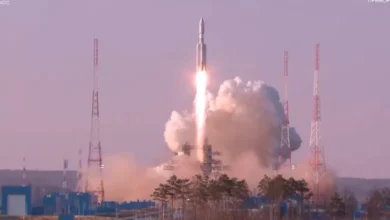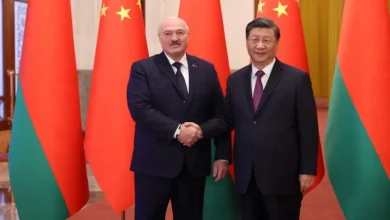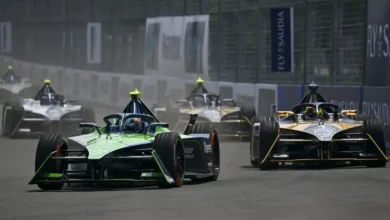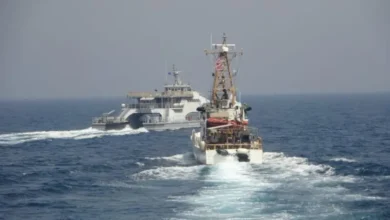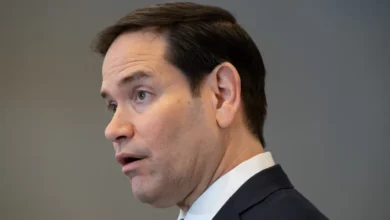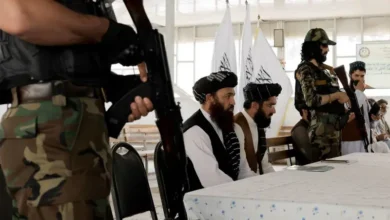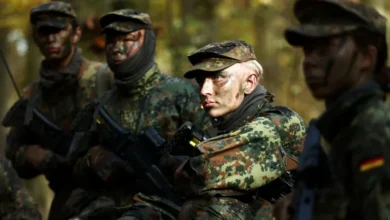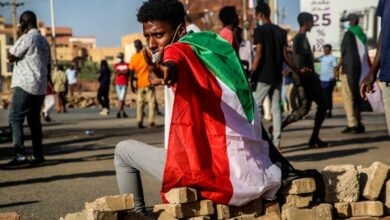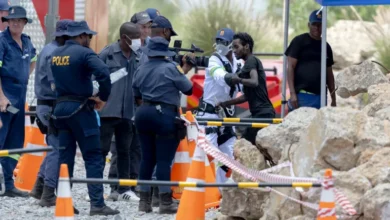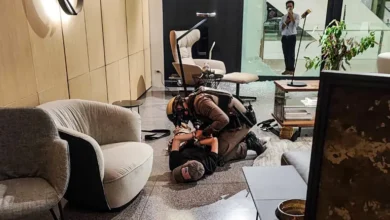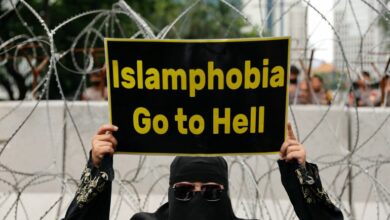In Chicago’s Little Palestine, locals protest and mourn amid Gaza war
Bridgeview, Illinois
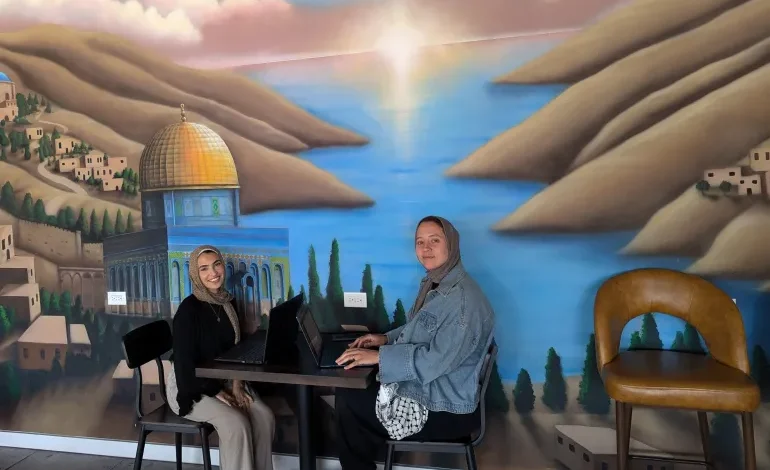
Bridgeview, Illinois
Standing outside his local mosque in suburban Chicago, Robhi Gharallah said Israel’s war in Gaza is on everyone’s mind in his neighbourhood.
“We’re praying. We’re protesting. We’re raising funds. We’re doing all we can for Gaza,” he told Al Jazeera after Friday prayer.
But Gharallah said there is one action he and his neighbours are uncertain about — and that is how to vote in the upcoming presidential election.
Gharallah lives in Bridgeview, Illinois, an area informally known as Chicago’s Little Palestine. It sits in Cook County, home to an estimated 22,518 Palestinian Americans — one of the largest Palestinian communities in the United States.
Sporting a cap with the colours of the Palestinian flag — red, white, green and black — Gharallah underscored that the Palestinian diaspora is a prominent presence in Chicago’s cultural and business sectors.
But he said Palestinian Americans are facing a dilemma in the next election, with both the Republican candidate Donald Trump and his Democratic rival Kamala Harris showing staunch support for Israel.
“There is no good in Ammar nor Amira,” Gharallah said, using male and female names in Arabic to represent Trump and Harris.
“We are American citizens, and we want to vote, but we don’t know for whom. Whether you vote for this one or this one, it’s the same thing. And if you don’t vote, it’s like you don’t exist [politically].”
Bridgeview was in the national spotlight this month, as the Democratic National Convention arrived in Chicago.
Just a day before Gharallah spoke to Al Jazeera, Harris appeared on stage at Chicago’s United Center — only 24km (15 miles) away from Bridgeview — to accept the Democratic Party’s nomination for the presidency.
For Chicago-area Palestinians confronting the devastating war in their homeland, the convention served as an opportunity to bring awareness to their cause.
But residents and community advocates told Al Jazeera that the event was also a bitter reminder that the Palestinian identity continues to be vilified and pushed to the political margins, including by Democrats who claim to value inclusivity.
They pointed to the Harris campaign’s refusal to feature a Palestinian American speaker on the main stage of the convention. That exclusion, they said, added insult to injury, given the size of Chicago’s Palestinian community.
‘Not normal’
Jinan Chehade, 26, decried “the moral apathy and dissociation from the reality” she saw as Democrats gathered to celebrate Harris, while US bombs dropped on Palestinian civilians.
“That’s why it’s so important for us to bring people together and remind them that this is not normal, that we’re not going to be filtered or drowned out,” Chehade told Al Jazeera, as she sat at a Bridgeview cafe with a mural depicting the Dome of the Rock in Jerusalem.
In Bridgeview, a town of 17,000 people, Palestinian symbols are almost never out of sight.
At the cafe, there were several paintings related to the war, including depictions of Palestinian victims such as Hind Rajab, the six-year-old girl who was stranded in her family’s car and gunned down by Israeli tank fire before rescuers were able to reach her.Chehade, a lawyer and protest organiser, said that, while Chicago-area Palestinians have always had a strong sense of identity, the community has seen a “transformation” over the past 10 months, with pro-Palestinian activism reaching new heights.
Little Palestine
Like much of the suburban US, Bridgeview has broad stretches of urban sprawl: low-rise buildings and rows of shops connected and separated by multi-lane roads.
But in Bridgeview’s Little Palestine area, many of the businesses — restaurants, cafes, barbershops, jewellery stores and clothing boutiques — are distinguished by Arabic signs and Palestinian flags in their windows.
During the Democratic convention, some storefronts featured posters promoting the protests outside the United Center.
“We will not surrender,” read a mural above a store that sells hijabs and abayas, next to a bakery that raised funds for Gaza by selling pins that say “Free Palestine”.
